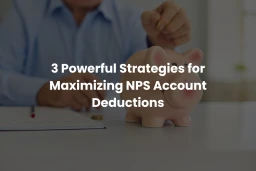What is an Endowment Plan?

Nobody can deny that everyone wishes for a long and happy life for themselves and their loved ones. This is where life insurance has become extremely popular. It not only protects your loved ones in the event of your untimely death or disablement, but it also provides a secure, happy, and fulfilling post-retirement life for you and your entire family. But, do you know what an endowment plan is or why it has become so popular? Not to worry! This article contains an endowment plan guide. Let us delve deeper to learn more.
What is an Endowment Insurance plan?
Endowment plans are life insurance policies that provide the policyholder with risk coverage and a maturity benefit at the end of the policy term. Policyholders are paid a lump sum at the end of a specified period known as the maturity period. In the event of the policyholder’s death or the holder’s own death, the insurance company will pay the assured amount to the policyholder’s nominees on a predetermined date.
Why do you need it?
Now that you know what an endowment plan in insurance is, let’s get into why you should have it. Endowment plans provide obvious benefits to policyholders. The policyholder will have a savings pool when the endowment insurance policy matures. They can reinvest the money, use it for personal expenses, or simply enjoy life after retirement. As a result, an endowment policy is nearly risk-free and provides a consistent amount on a fixed date as long as the premium is paid.
 What is an Endowment Plan?
What is an Endowment Plan?Benefits of an Endowment Plan?
Here are some of the benefits of an endowment plan:
- Maturity Benefit: When the policyholder’s endowment life insurance policy matures at the end of the term, they receive a substantial sum.
- Death Benefit: This is the amount of money that your loved ones/nominee will receive if you die unexpectedly. It functions similarly to a life insurance policy.
- Tax benefits: Endowment insurance schemes also provide tax advantages to policyholders. According to India’s Income Tax regulations, the premiums paid for the coverage can assist you lower your taxable income.
Endowment plans with maturities ranging from 15 to 20 years are more profitable since they allow you to amass more money over a longer period of time. Furthermore, the sum paid at maturity can be utilised to pay large future expenses.
Some plans also provide the policyholder with guaranteed returns and incentives in addition to the sum assured, which is deposited to the policyholder’s account each year. These advantages, together with the tax advantages, make the life insurance endowment policy an exceptionally enticing investment vehicle.
A savings endowment plan is appropriate if you are seeking a low-risk plan with the combined advantage of insurance and investment, or a plan with a long-term investment view that provides you with a lump sum amount at the end.
Important Note:
Now that you understand what a whole life endowment plan is, here are some things to keep in mind before purchasing one.
Endowment plans have a surrender value, which is the amount the policyholder receives if they decide to cancel the plan. But, as a policyholder, you are only eligible for this sum after paying the premium for at least two years. This surrender money can come in helpful in the event of a financial emergency. However, keep in mind that the surrender value is typically less than the entire premium paid in the early policy years, implying that it is more of a compensation than a benefit. As a result, investing in endowment policy for a longer length of time is advantageous.
Follow us on Instagram.









